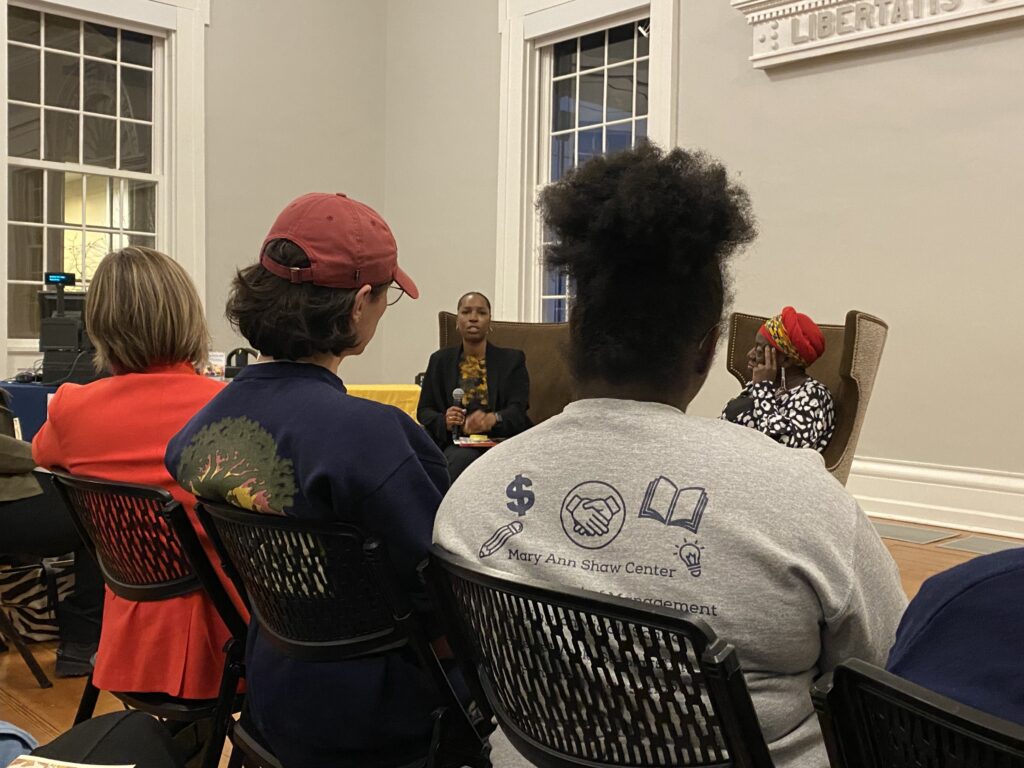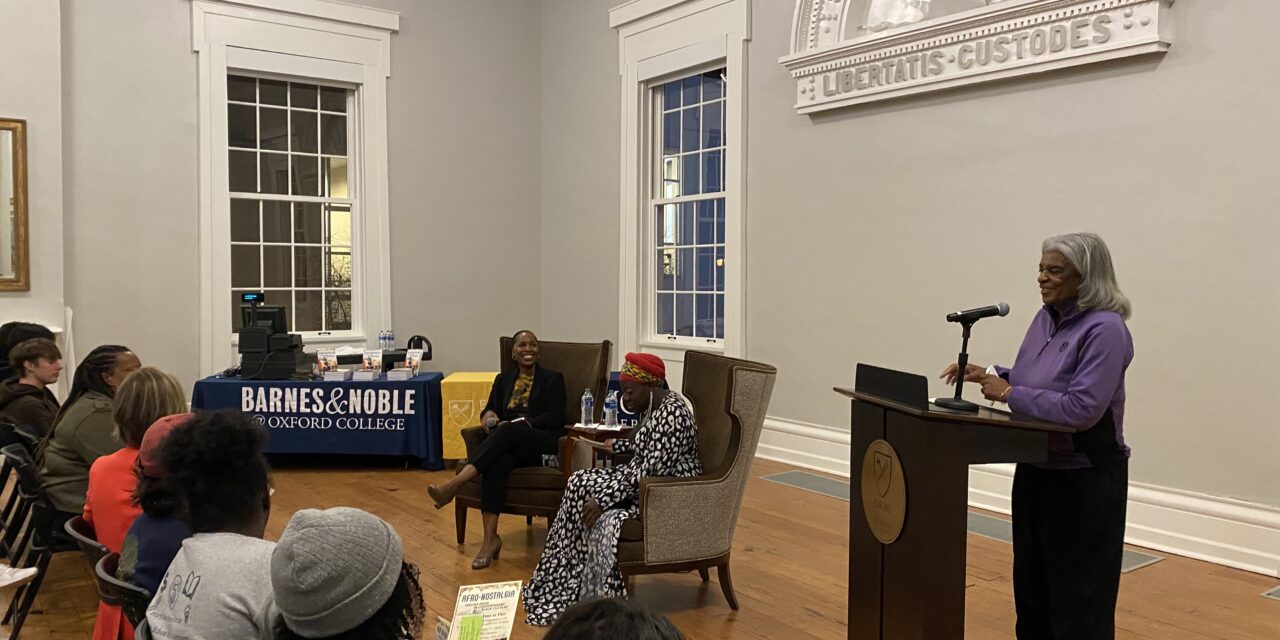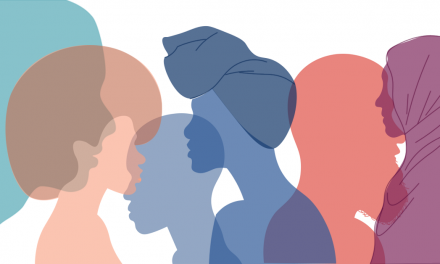In celebration of Black History Month, Oxford College Dean Badia Ahad discussed her book, “Afro-Nostalgia: Feeling Good in Contemporary Black Literature,” in a conversation with Assistant Professor of English and Creative Writing Tameka Conley. The historical novel, which Ahad published in 2021, analyzes Black joy through the lens of literature, visual culture, performance and culinary arts.
“Dean Ahad’s book is like none other I’ve read,” Conley wrote in an email to the Wheel after the event. “Dean Ahad did the intellectual community at-large a service with this masterful, thought-provoking work.”
Conley told the audience that the dean pushes readers to think beyond “Black victimhood.”

Attendees listen to Oxford College Dean Badia Ahad discuss her book. (Alyza Marie Harris/Oxford Events Desk)
Ahad said that “Afro-Nostalgia” was born out of an experience she had while teaching at Loyola University Chicago, where she worked in various roles from 2018 to 2023. In a Black literature class she taught, she recalled ending the course with a review of “Between the World and Me” by Ta-Nehisi Coates, which she said ends in a “really dark place.”
“I felt as though these students who had never encountered really African American literature before, and maybe they never would again, that this is the view they would have of Black life,” Ahad said. “That it was all about pain and trauma and that was really the end of the story.”
Ahad stated that while people cannot ignore the “pain and trauma” rooted in Black history, she had a “joyful” and “rich” upbringing. Growing up as the daughter of educators in Chicago, which she noted was very segregated, Ahad said she never felt unfulfilled despite her family not being affluent.
Ahad said she knew that course did not tell the whole story. When writing “Afro-Nostalgia,” she said that she wanted to explore the possibilities of expressing African American literature and culture through a more positive lens.
Ahad explained that part of her writing process was giving herself time to have fun and just be herself “on the page” without focusing on how people might respond to her ideas. She said she hopes the book inspires other scholars to continue the conversation.
“I am inviting the audience to think through these fairly complex ideas with me and to come to your own … understanding of what’s on the page,” Ahad said.
During the Q&A portion of the event, a student attendee asked the dean about the role of Black women’s joy in academic spaces where they are underrepresented.
In response, Ahad first expressed the feeling of “isolation” that comes with being a person of color in academia. The dean emphasized the importance of community and building a pipeline for people of color into academia.
“It’s also just acknowledging that our universities were built largely around this principle of exclusion,” Ahad said. “They were built for an elite class. We’re still trying to overcome that, trying to fight that.”
Both Ameer Alnasser (25Ox) and Genesis Bond Hollingsworth (25Ox) attended the event as part of their Oxford Studies class. Hollingsworth said she was already fond of Ahad and Conley and wanted to see more of the dean’s work.
“I really appreciate her use of art and different media to really portray the humanity of Black people, but also our culture as a whole because we are so much more than our pain,” Hollingsworth said.
Ahad said the idea of nostalgia being impossible to achieve in Black communities is false, with Alnasseer adding that the book “subverts that narrative.”
All of the event’s attendees received a free copy of “Afro-Nostalgia” and had the opportunity to have it personally signed by Ahad at the end of her talk. Although Ahad said readers can start her book from any point, she told the Wheel that reading the full book would allow students to see the broad questions about what influenced the project — the historical and present idea that “Black people just don’t feel” and where this idea came from.
“Think about how we might always continue to undermine that narrative,” Ahad said. “So how can we continue to raise the spirit of Black joy?”





